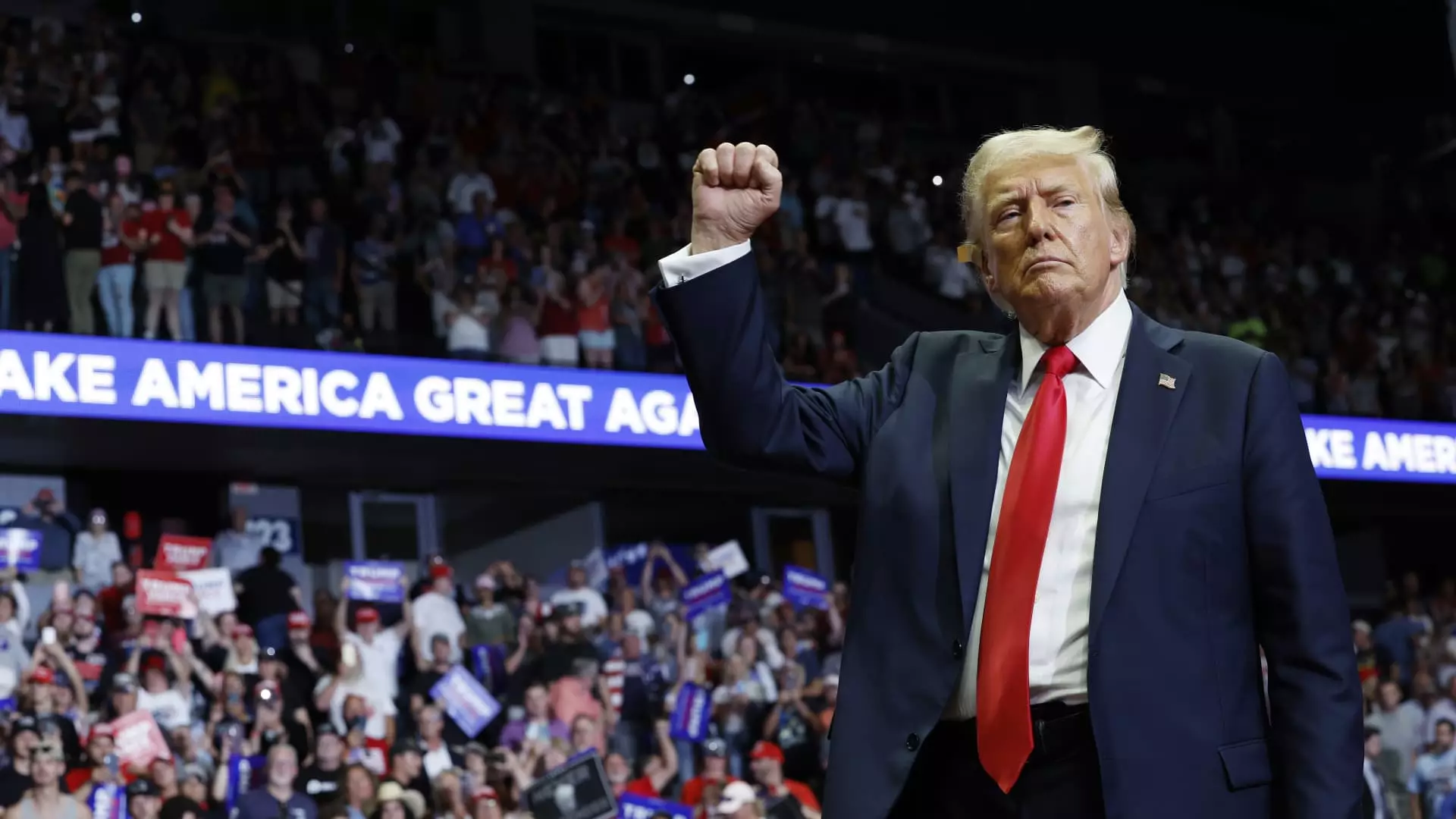When former President Donald Trump took the stage at the biggest bitcoin conference of the year in Nashville, it marked a significant turning point in the landscape of American politics. Trump’s appearance at the conference, alongside his hosting of a high-priced fundraiser, underscored the increasing importance of the fintech sector in shaping the upcoming 2024 presidential contest.
Interestingly, Trump’s participation in the bitcoin conference represented a stark departure from his previous stance on cryptocurrencies. During his time in the White House, Trump publicly criticized bitcoin and other virtual tokens, labeling them as a “scam” and expressing his preference for the dominance of the dollar as the world’s currency.
The pivot in Trump’s attitude toward bitcoin coincided with a larger trend in the Republican Party, which has been actively courting the support of the crypto community. With promises of rolling back regulatory hurdles and positioning itself as a champion of innovation, the GOP has successfully positioned crypto regulation as a key voting issue for the upcoming elections.
The sudden thaw in Trump’s sentiment toward cryptocurrencies can be partially attributed to the influx of interest and financial support from some of the country’s top tech talents. Notable figures like the Winklevoss twins, Tyler and Cameron, and venture capitalists Marc Andreessen and Ben Horowitz have pledged significant donations to pro-Trump political action committees, signaling a growing alignment between the tech elite and the Republican Party.
As the Republican Party strengthens its ties with the crypto community, questions loom over how the Democratic Party will navigate this shifting landscape. While Vice President Kamala Harris has demonstrated some interest in crypto-related matters, her party’s approach to regulating cryptocurrencies remains unclear. With the tech industry’s support up for grabs, Democrats like Harris are actively seeking to court undecided donors from the big tech sector.
The unprecedented shift in Trump’s stance on bitcoin underscores a broader realignment in the traditional political alliances of the tech community. With high-profile figures from companies like Coinbase, Ripple, and venture capital firms pledging their support for pro-crypto candidates, the influence of the tech elite in shaping the political landscape has never been more pronounced.
Overall, Trump’s appearance at the bitcoin conference in Nashville marked a pivotal moment in the intersection of politics and technology. The shifting dynamics of the crypto industry’s relationship with both major political parties signal a new era of influence and engagement between the tech community and the political establishment. As the 2024 presidential contest approaches, the role of cryptocurrencies and fintech in shaping the future of American politics will continue to evolve, with far-reaching implications for the industry as a whole.


Leave a Reply